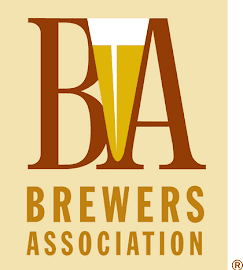You've heard this shouted like a dire warning. You've read it from respected sources. The gist is:
Hop bines and barley fields are being ripped out, replaced by rows of corn—acres and acres to to be churned up and distilled into ethanol.
To date, however, I have not seen evidence or statistical analysis proffered to support this assertion. Quite frankly, I believe it to be somewhat of a canard.
Hops have been over-planted for years. The glut kept hop prices low.
Thus even before the recent spike in government ethanol subsidies, hop farmers had begun to move to other crops. In 1950 there were 515 hop growers in the US. In 1990, there were 120; in 2006, there were 75. 1
So, in 2007, there were fewer acres devoted to hops. In addition, there were bad harvests in hop-growing areas throughout the world, there was an exchange rate favorable to exports (but unfavorable for imports) , and there was a hop fire in the Pacific northwest which destroyed 4% of the US crop. Hop prices jumped.
With prices higher—and more so on the spot market—over their level of a year earlier, why would any extant hop farmer willingly forgo that potential bonanza for a lesser financial return from corn? If anything, I would expect to see an increase in hop acreage over the next 3 years.
Now, let's examine barley: are farmers ripping up their fields to grow corn?
The barley belt—particularly for malting barley—lies north of the corn belt. The majority of barley is grown from the Dakotas north; corn, south. 2
US corn has been subsidized by the government for years, in effect promoting corporate agri-food-business. Even so, as late as 2005, the typical Iowa farm would barely earn more per acre for corn than its costs to grow it. 3
The bio-fuel mandate has indeed caused the price for corn to increase dramatically. However, the price for malting barley—traditionally greater than the threshold for both food and feed corn— has also increased, and remains above the price for corn. In great measure, this price increase has been caused by poor weather conditions. Many barley farmers have turned their drought-seared fields over to their ruminants, not to husks of corn. 4
So, this question: Why would barley farmers willingly switch from barley to corn in areas not normally suitable for corn and for financial return lower than for malting-quality barley?
At present, I believe that this ethanol-fuled idée fixe may have begun as a promulgation of a political point of view. It has since been repeated enough by other well-meaning observers to have become perceived truth.
I don't buy it.
But if I'm wrong?
I'll drink a big, fat, over-hopped beer ... and I'll drink it like I like it.
Related posts:
- Hops down, prices up
- Hop Crop Drops A Lot
- Barley bad too, in Europe
- more on hops cost, shortage
- Barley and hops lose to ethanol?
- Response to Ethanol Fallacy
- US hop harvest INCREASED in 2007
1 [Ian Ward, The New Brewer, Vol. 24, No.6]
2 [ibid]
3 [Michael Pollan, The Omnivore's Dilemma, Penguin, 2006, p.53]
4 [Ian Ward, The New Brewer, Vol. 24, No.6]











Tom,
ReplyDeleteGood analysis.
I think the biggest battle in crop commodities is between corn and soybeans. The two are often planted in rotation with one another and regularly compete for farm acreage.
Government subsidies for corn-based ethanol will have a significant market impact for soybeans: lower production, higher prices, decreased exports. But I tend to agree with your assessment of grains -- cool-weather barley doesn't compete with corn like soybeans do.
Here's an interesting article on barley as a possible source for ethanol.
http://tinyurl.com/yszbbu
Interesting stuff. Thanks for calling me out!
ReplyDeleteNice blog. I'm adding it to my blogroll.
Cheers!
Bryce
Thanks gentlemen! I hope no one infers that the way forward will be easy this year. In fact, recent economic news does not seem that good. The price increase of hops and barley and their lessened availability may be two more choke-points in 2008, regardless of their causes.
ReplyDeleteTom,
ReplyDeleteI'd like to believe that the ethanol theory is wrong, too, but unfortunately I have driven through and around the hop fields in Yakima, Washington (the nation's hop-basket) and seen with my own two eyes many, many fields of corn planted there. And while I don't for a second believe it's the *only* reason hops are currently in short supply, it is one of the factors. For an article I did on hops last year, I interviewed several of the old family growers in the Yakima area (including the great-great-grandson of the very first hop grower there) and they all agreed that at least some of their former brethren were swayed to plant corn by the increased ethanol subsidies offered recently by W. As you mention in your Pollan cite, barley may indeed earn more per acre than corn, but what about hops? Hops are difficult to grow, finicky and require a lot of capital to harvest and process. So in that case, apparently corn is an attractive substitute for some farmers. Not to mention, the subsidy Pollan was talking about in his book (which I thought was wonderful BTW) was at the 2005 levels and my understanding is that Bush increased those when he made his ethanol push.
It's my feeling that the barley situation will be fixed in relatively short order, but that the hop shortage will take several more years. This year, those brewers who had contracts in place will be relatively unharmed with a few prices increases. Those on the spot market are already screwed. There are posts almost daily on the Brewers Association forum by people looking for hops, trying to trade hops, or just plain begging for them. Next year, all bets are off because even those who are diligent enough to make contracts will have to do so at higher prices.
As I understand it, hop prices tend to run in ten year cycles and that also had a lot to do with farmers turning to other crops. Now that the price is through the roof, however, you'd normally expect more acreage to be planted to meet that demand and make more money. But hops are a bit more tricky than other crops. First of all, it takes three years for a field to mature. Second, hop growing is more expensive an enterprise to start up than many other crops and are also more difficult to grow for the inexperienced. Third, current hop growers can't easily produce more, not because they don't have more land — they do — but because they're maxed out on kilns, harvesting trucks, etc. and would have to make large capital investments that most are not able to or willing to undertake at this time.
There is statistical data available at the Hop Growers Association and a few other places that I can't quite recall (I think I found some world stats at a U.N. agro-agency, for example). And indeed, world production has been steadily decreasing everywhere fomr some time now, even though demand is on the rise. So while the ethanol/corn issue did not necessarily cause the problem, it most likely did exacerbate it and has made a bad situation worse.
So for these, and other reasons, I think the hop shortage is very real and will likely be with us for several more years before it's resolved. Unfortunately, I think many brewers have been and are continuing to stick their head in the sand and are expecting this problem to just fix itself.